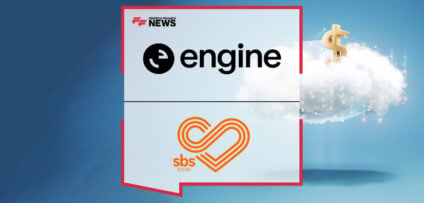Breaking News

Fintech and entertainment – how these two industries collide
Financial technology has come a long way, but it wouldn’t have been what we know it as today, without the help of other industries. What I mean is that, without integrating itself in other sectors of the world, such as e-commerce, entertainment, payments, and various other fields, financial technology would probably die out very quickly as it would not be able to display its use cases.
The issue with modern perception of Fintech is that most people see it as an extension of a bank or some kind of microfinance company. That can’t be further from the truth. Fintech is something that we use on a daily basis, something that we utilize from our devices. Chances are that if there was something you purchased online recently, you did it through the help of financial technology.
It doesn’t matter when the software was developed as well, fintech is fintech. But how exactly do we recognize the presence of financial technology in an industry we are interested in? What sorts of software can we expect in sectors that don’t necessarily follow the business model? Well, it all comes down to payments and the attraction of new users.
How fintech conquered the entertainment industry
Financial technology first entered the entertainment industry the moment we started online movie bookings, streaming services as well as game libraries come to life in the 2000s. In the past, we all remember just buying a CD or tape with cash and inserting it in our ragged old movie player just to watch something or have some fun.
It would usually take quite a lot of time to simply get one’s hands on these items. And worst of all, they might have not been available at all. With the digitalization of most of these platforms the supply issue was immediately dealt with, but buying or making a transaction was still preferred through cash. This meant that people would top-up their accounts through pay boxes outside, similar to how they’d do it with their mobile phones and only then proceed to buy these items.
Nowadays though, it just takes a couple of clicks for a person to buy something online. Be it a ticket to the movies, or the newest video game. We have things like PayPal to thank for this. Even though it may not be the go-to platform for most, it still registers as a user-favorite in terms of speed.
But the even better news is that there are new ways to make these exchanges, and most of them have to do something with the blockchain.
Blockchain’s role in entertainment
It’s safe to say that aside from producing cryptocurrencies, the blockchain has added quite a lot of transparency and speed to our financial lives. The ability to receive the money within minutes or even seconds of requesting it is something completely alien to those doing business with large corporations. Usually, it takes a week to receive these transactions, which is why businesses and employers request their employees to comply with every banking rule the company may have. This may be things such as an acount in the same bank, the same currency, and the same card provider such as Visa or MasterCard.
The blockchain allows us to have no affiliation with a centralized entity, thus giving more flexibility. This flexibility was first shown with crypto escape rooms when the industry was looking for that extra edge to cut through the “mainstream levels”
For those who don’t know what escape rooms are, they’re basically a fun activity where people try to exit a room that has a lot of puzzles and challenges. It wasn’t very popular in the past, and most can’t say that it’s very popular today. However, by adding things such as cryptocurrencies as a means of payment, they managed to increase their volume considerably.
People who didn’t know where to store their coins were very keen on spending them somehow while there was still time, and escape room owners were expecting a surge in the future. So it was something like a win-win a few years ago.
This was especially the case with London escape rooms as the Brits were starting to accumulate more and more cryptocurrencies as exchanges started funneling into the financial capital of the world.
By simply allowing crypto payments, these small escape rooms managed to convert thousands of people who had never heard of the entertainment method to loyal customers.
Payments for Steam
Steam was also one of the first major companies that started accepting cryptocurrencies as a means of payment, thus solidifying themselves as a progressive corporation for pretty much everybody.
The platform was quickly turned into a way to liquidate cryptocurrencies. Users would simply buy video games with new accounts with cryptos, and then sell those accounts for fiat money.
It didn’t really last that long, but the fact that cryptos were being accepted, multiple publishers received millions of dollars as revenue that they would have had to concoct promotions for.
Overall, what we can say is that the entertainment industry is directly tied to Fintech, simply due to the fact that people don’t want to stand in lines waiting for their favorite games, or would rather have a pre-determined spot through online payments.
- DIFC’s Dubai FinTech Summit Expands Globally with Pakistan Digital Authority Read more
- GoldenPeaks Capital Secures Largest PPA Deal in Hungary With Hankook Read more
- Volante Technologies: AI, Crypto, and Modern Banking Innovation Read more
- Payment Spayce and Sagicor Bank: Innovating Fintech for the Caribbean Market Read more
- Top Companies Supporting Former Workers with German Pension Refunds Read more












